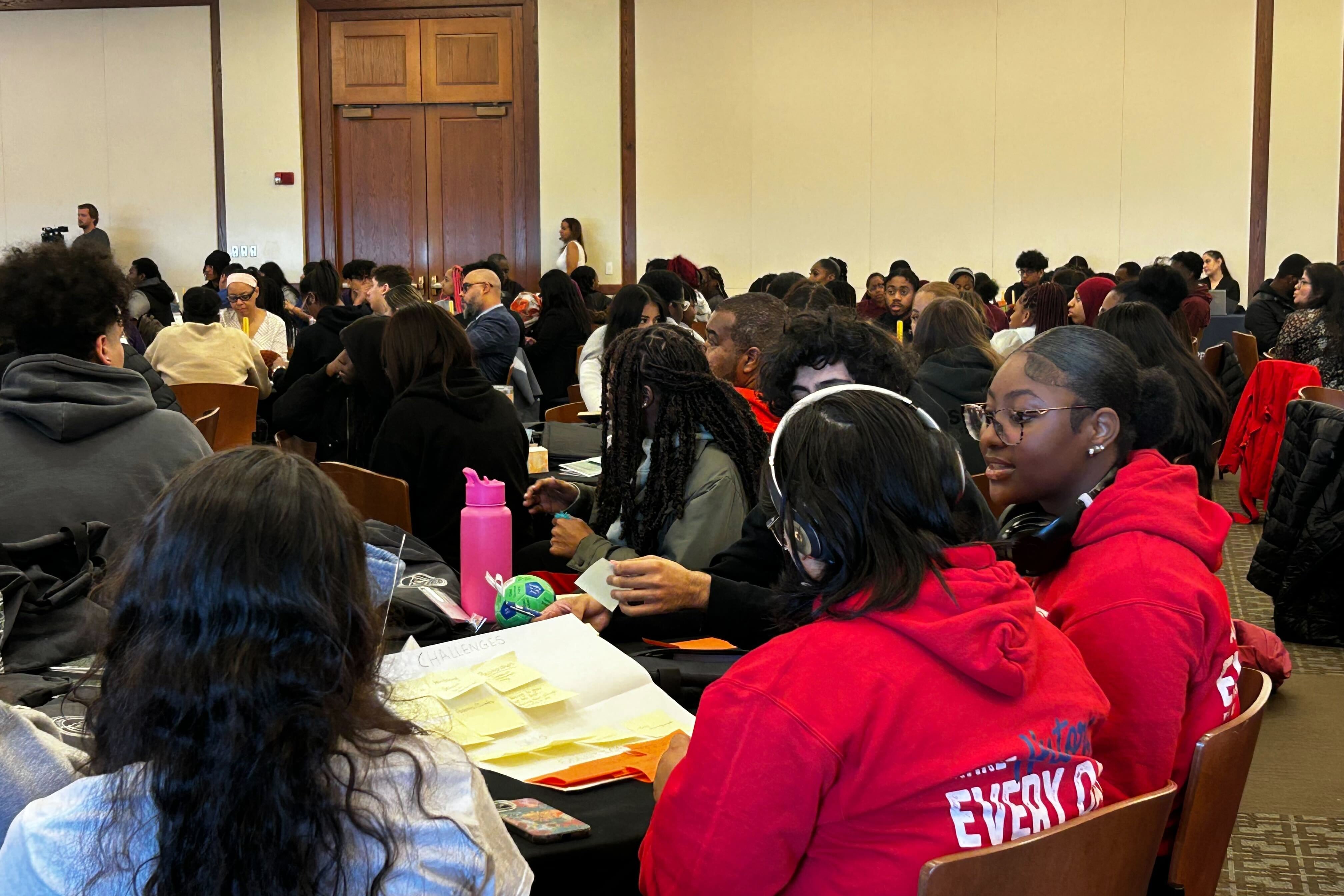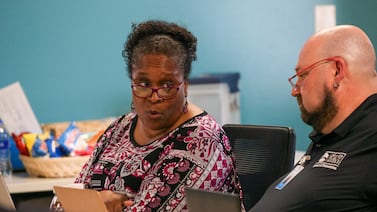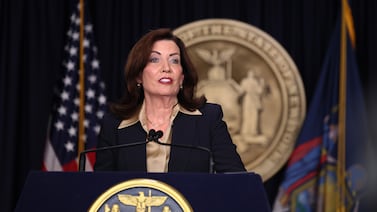Sign up for Chalkbeat Newark’s free newsletter to get the latest news about the city’s public school system delivered to your inbox.
Roughly a quarter of eligible 16- and 17-year-olds have registered to vote in Tuesday’s Newark Board of Education election, but that number leaves out thousands of teens who could have signed up to vote for the first time.
According to the Essex County Superintendent of Elections Office, 1,772 teens have registered to vote in the April 15 school board election. That falls short of the 7,257 who could have signed up, based on estimates from the New Jersey Institute for Social Justice.
The final count of registered teens follows weeks of efforts by local organizations and school leaders to get Newark’s 16- and 17-year-olds signed up and ready to vote in the historic election, the first since Newark lowered the voting age to 16 for school board elections. Newark Public Schools Superintendent Roger León said he aimed to register at least 3,000 students before the March 25 deadline.
This year, voters will choose three out of 11 candidates to serve a three-year term on the Newark school board. City leaders also hope the lower voting age for youth could boost voter turnout for school board elections, which historically have seen around 3% to 4% of registered voters participating.
But advocates shouldn’t feel discouraged about the number of registered young voters because “voting awareness is something that takes time to set in,” said Micah Rasmussen, director of the Rebovich Institute for New Jersey Politics at Rider University. New election rollouts, such as voting by mail and in person, took years before they were adopted and properly implemented, Rasmussen added.
“It takes several years of elections for people to get used to something new,” Rasmussen said. “These teens are the pioneers, the early adopters, the ones who are going to have this experience and tell their friends about this, their siblings. And that’s going to spur the next group of people to try it.”
Newark became the first city in New Jersey last year to lower the voting age to 16 for school board elections. But the youth vote was delayed until the 2025 election due to voter registration issues, according to city officials in 2024.
Of the 1,772 registered youth voters, 994 are 17-year-olds, 776 are 16-year-olds with some turning 17 by election day, and two are 17-year-olds turning 18 on election day, according to the Essex County Superintendent of Elections Office.
The three winning candidates will decide policies in New Jersey’s largest school system, which is home to around 40,000 students across 64 schools. The Newark school board is also tasked with holding León accountable, addressing student issues, improving schools, and approving a budget, among other tasks. City youth have also said they are interested in seeing younger school board members represent them, improve school lunches, and adopt a curriculum that reflects their experiences.
The decision to lower the voting age posed challenges for city leaders tasked with registering new voters by the deadline and educating them enough to cast an informed vote.
Under state law, school districts are required to provide eligible voters with registration forms, a summary of voter registration eligibility requirements, materials describing the role of a citizen, and information that highlights the importance of voting, but they are not required to provide information about local elections.
In February, Newark Public Schools launched the Vote 15+ voter registration campaign to get students registered. León said he visited high schools to discuss the importance of voting, and hosted a three-day civics course for high school students. The district also welcomed New Jersey Gov. Phil Murphy, Newark Mayor Ras Baraka, and other elected officials in March to encourage the city’s teens to register and participate in the school board election.
Organizations such as the Institute for Social Justice, The Gem Project, and Youth Media Symposium have been canvassing, hosting voting events, and training sessions to ensure city youth know what’s at stake in a school board election and how it impacts them. City educators have also held class discussions about the upcoming election, but some said they found it hard to find information on the school board candidates when planning lessons.
With a day until the election, the question is how many teens and residents will show up to vote because “it won’t be 100% of them,” Rasmussen said.
“I hope that the first teen voters have a good experience,” Rasmussen added. “I hope they feel like these new officials on the school board are accountable to them, that, like other voters, they feel they have the same right to pick up the phone and reach out to them and email them and enjoy the place they have in the process now.”
Jessie Gomez is a reporter for Chalkbeat Newark, covering public education in the city. Contact Jessie at jgomez@chalkbeat.org.







